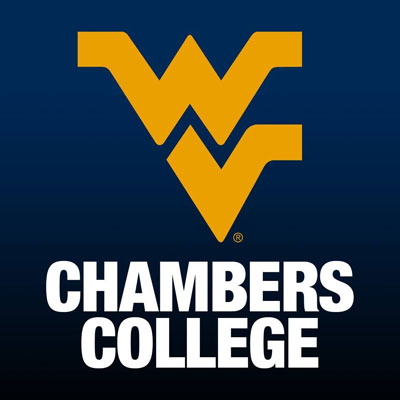Despite regional and nationwide trends of declining numbers of students graduating from high school, enrollment at the John Chambers College of Business and Economics at West Virginia University has increased.
Actually, undergraduate enrollment has increased every year since the business school went to a four-year format in 2011, allowing business students to be directly admitted as freshmen instead of after they have met specific criteria prior to their junior years. That format also benefitted students through earlier access to advisors and increased internship opportunities.
But recent years have presented a different set of challenges, said Rebel Smith, assistant dean for undergraduate programs, including a decreasing number of high school graduating seniors in most parts of the nation. While those trends were identified only a few years ago, the Chambers College has seen increased enrollment ever since.
“We have substantially increased our retention efforts, and that is evidenced by our undergraduate population increase,” Smith said. “This is an increase for the second straight year, despite declining high school populations in this area of the country. So, we’re investing more in retention.”
And the good news doesn’t end there. Updated enrollment data also shows an increase in both SAT scores and GPA of freshmen who started in the Fall 2018 semester, as well as an increasing number of women in WVU’s business school. Specific programs seeing jumps in enrollment include global supply chain management (47.8%), management information systems (12.9%) and marketing (6.2 %).
The number of first-time freshmen was down slightly over the previous year, but the overall undergraduate student population at the Chambers College has increased to 2,550. That increase, Smith said, has everything to do with the school’s retention efforts.
While higher education institutions are periodically criticized for not doing enough to provide students the resources needed to perform well enough to stay in school, Smith said that’s just not the case at WVU. She further explained that the eastern U.S. has seen a significant decline in the number of high school graduates, and that trend is expected to continue for the next few years.
“There are actually fewer people graduating, so we have even further stepped up our efforts to keep students here by helping them be even more successful,” she said.
The college has also applied an innovative approach to educational offerings. For example, the Fall 2018 semester marked the first time business majors could minor in business at WVU. The fall semester also saw the start of the online general business major, an offering that has attracted both traditional and nontraditional students.
The Chambers College has implemented retention efforts that also include the creation of the Academic Engagement Success Center, where students have access to resources ranging from tutoring to honing their writing and speaking business communication skills, and peer coaching for career readiness.
Additionally, the Department of Undergraduate Programs — which offers individual advising to all business school students — has beefed up its resources, greatly benefitting students.
“Advising staff has nearly doubled over the past two years,” Smith said, “and we now have a director of retention and recruitment. The director’s focus is solely retention and recruitment, and that has made a big difference.
“If we bring students to WVU, we have an obligation to do everything we can for them to be successful. Retention is a good investment.”

